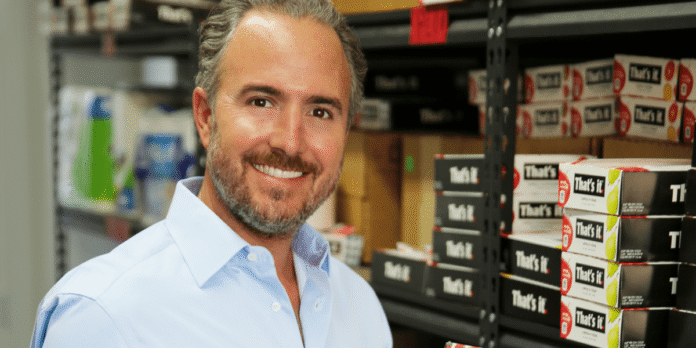For many young workers, today’s job market makes a straight career path feel like a luxury. Luckily, healthcare-related fields have little to worry about, with AI experts saying robotic nurses are not in the picture anytime soon, and unemployment rates among college graduates reaching just 3% for biology majors and 1.5% for nursing, according to data from the Federal Reserve Bank of New York. It’s no surprise then that Gen Z are flocking to these “more secure” healthcare jobs.
But for Lior Lewensztain, there was an even bigger problem that overshadowed job security—he was struggling to believe in the profession altogether. As a medical school graduate, he was in part put off by insurance companies that have made medicine less of a public service. And while a traditional medical career promised financial stability, the 46-year-old took stock that he could have far more impact—and even more wealth—by skipping residency and heading back to school for his MBA.
“I realized I could make a bigger, scalable impact by using food as preventative medicine, a concept few were talking about when we launched 13 years ago,” Lewensztain, now the founder and CEO of That’s It Nutrition, tells Fortune.
“Pivoting to business school and starting the company quickly became the only path that made sense.”
And make sense it did: Today his company brings in over $100 million a year selling healthy fruit bars and snacks at 85,000 retail locations, including Walmart, Target, and Costco. For Gen Z starting out, whether in healthcare or entrepreneurship, Lewensztain’s advice is clear: success comes down to effort.
“If you’re hesitant, somebody else will take your spot in a heartbeat,” he says.
Despite holding 3 degrees, this founder tells Gen Z to skip college and learn on the job
With three degrees to his name, Lewensztain is seemingly a poster child for higher education.
However, now as a business leader, someone’s educational background is the least of his worries when he’s hiring for a role. In fact, when looking at resumes, he completely skips over degrees, and instead is focused on candidates’ skills.
“I really try to look at what kind of thinking you can do on the fly,” Lewensztain lists the green flags he’s looking for instead. “Can you think out of the box? Do you feel like you can handle situations? Because for us at least on a day-to-day basis, there are always challenges that come across all different whether it’s operations, sales, you have to be able to pivot very, very quickly.”
And while he adds that going to business school opened doors “a little”, as well as his mind to different ways of thinking, he admits the best training comes from being on the job—especially now that the average MBA student takes out over $80,000 in student loans. “The last 13 years provided way more experience and insight into how to operate than the 15 months did for getting the degree.”
Peter Thiel and Reid Hoffman have echoed similar sentiments
The immense value of getting your hands dirty and being adaptive to the job is a mindset shared by many business leaders.
For example, Billionaire Peter Thiel’s fellowship encourages entrepreneurs to skip or leave college in favor of going all-in on their business idea—and he hands out $200,000 to help make it a reality. And while not every idea is successful, the program’s fellows, including Figma cofounder Dylan Field and Scale AI creator Lucy Guo, have created businesses with a combined worth of over $100 billion.
Billionaire LinkedIn cofounder Reid Hoffman echoed this sentiment: “What you should take forward from your college degree isn’t necessarily the thing you learned in X-101,” Hoffman said in a video posted to YouTube in June. “It isn’t specific degrees, specific courses, [or] even necessarily specific skills that are relevant to you.”
Rather, he said, “it’s your capacity to say, ‘Hey, here is the new tool set, here’s the new challenge.’”



